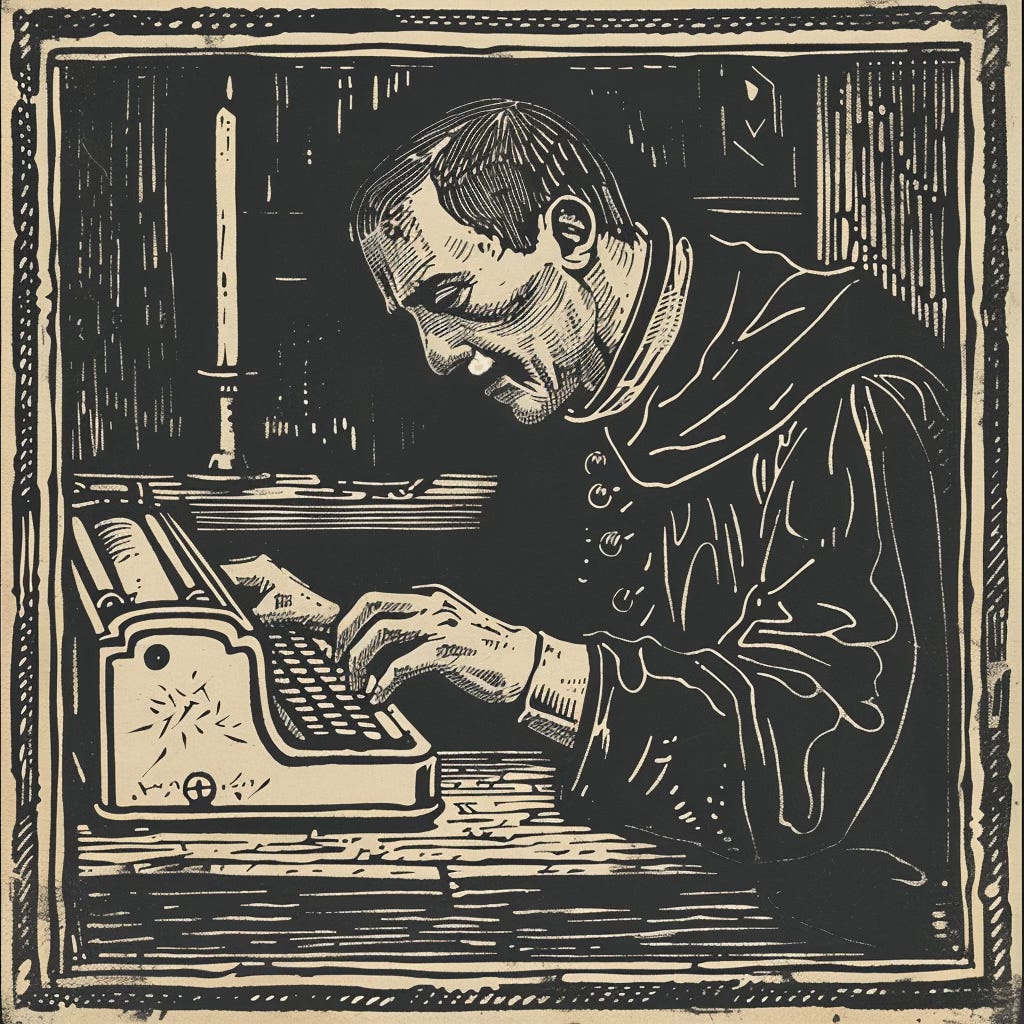Reflecting on this letter from Henri Didon,1 dated September 19, 1880, I find myself grappling anew with the call to "die before you die," a theme St. Paul described as the "foolishness of the Gospel." This echoes a truth I encountered in a letter from François Fénelon earlier this year. Didon, a Dominican priest deeply involved with youth sports and known for his rich spiritual letters, urges me to shed more of my self-centrism, to enter more deeply into the crucifixion of Jesus. He also touches on the views of Stoic (Self-control) and Socratic (Rigorous questioning) philosophies, which, while noble, fail to match the Christian principle of divine self-gift, what Sergei Bulgakov calls “the holy insanity of love.” God’s ultimate gift—His Son, His own death—is a sustaining and transforming act of love that has and is redefining creation and our participation in it. Enjoy.
September 19, 1880
I begin today, my dear only daughter, my sixth month of exile.
How the days fly!
How quickly our short life passes, and we die!
Is it really worth while to worry and fret as we do on our little earth? It is good to rise above the little trifle we call our life, and to lose ourselves in Him Who is the sole and unique Object of our soul's existence?
This is called dying.
Happy are they who can die in spirit before dying in reality.
Attain this greatest knowledge of all, my dear only daughter. Lay self aside and lose yourself in Christ, Who first laid self aside, and lost Himself, humanly speaking, for us.
That, my child, is the great foolishness of the Gospel; yet whosoever does not give up his soul and his life is but a heathen. A sage of the Stoic or Socratic School he may be, but he is not a Christian.
For us, our only worth lies in sacrifice, self-denial, pain, martyrdom.
Without these divine things all our goodness is but as smoke, all our efforts barren.2
Henri Didon was a French Dominican priest, renowned for his eloquence and the profound impact of his written correspondence. Early in his life, he embraced a spiritual calling by entering the Dominican Order, where he devoted himself to preaching, teaching, and writing. His letters, rich with insight and fervor, touched many lives, blending theological depth with practical wisdom. Didon is perhaps best known for coining the Olympic motto "Citius, Altius, Fortius" (Faster, Higher, Stronger), which encapsulates his philosophy of striving for excellence in all aspects of life. His writings continue to inspire, demonstrating the power of words to uplift and motivate.
Didon, Henri. Spiritual Letters of Père Didon, O S D. United States: HardPress, 2012.



What a beautiful and freeing invitation. While certainly Korie's comment certainly points out an extreme to be wary of, I find most days it's this dying to self and invitation to foolishness that I most need to hear.
I think there’s a fine line that needs to be drawn here… yes, it is important to die many deaths to self during our lifetime. What I think this means is that we learn not to respond to others out of our EGO - instead, we respond out of love. The ego wants to maintain how we appear to others, how we measure up, and how often we are right. Responding out of love considers the other person as equal to ourselves.
However, I do not believe that Christ would expect us to sacrifice ourselves entirely - to the point of allowing abuse, being taken advantage of, walked on, or dominated by a bully. Taking care of ourselves is part of loving ourselves, which we are also expected to do as Christians. Just my take on it as someone who fell into the lie of constant sacrifice and wound up severely depressed as a result.